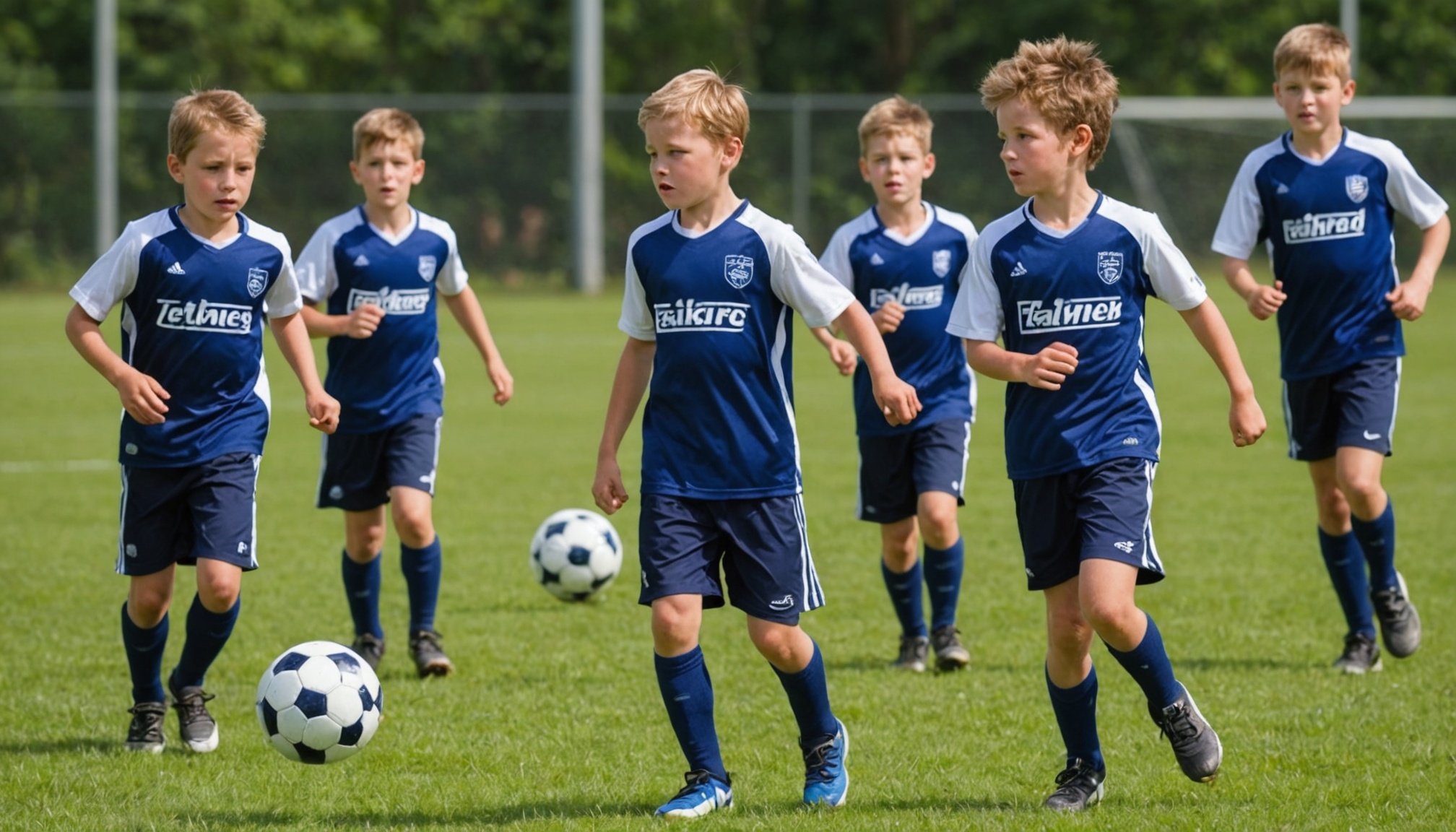Participating in sports goes beyond the realm of mere physical activity. Children engaging in team sports are exposed to a multitude of facets that contribute to both their physical and mental well-being. As we delve into the psychological benefits bestowed upon children through team sports, it’s essential to explore how these activities shape their minds and enrich their lives. In today’s tech-savvy era, where a Google search can reveal vast amounts of data, understanding these benefits through a thorough review of scholarly insights is crucial. Let’s examine how involvement in team sports serves as a dynamic vehicle for personal growth in youth.
Developing Social Skills through Team Sports
Team sports provide a unique environment where children learn to interact and communicate with peers beyond the school setting. This social participation becomes a cornerstone for developing skills that are essential for success in life.
Also to read : What are the best ways for UK athletes to prepare for post-retirement life?
Fostering Communication:
In a team setting, children must articulate thoughts, ideas, and strategies to navigate the game effectively. This nurtures clear communication skills, enhancing their ability to express themselves confidently.
Building Relationships:
The bonds formed on the field often translate into meaningful friendships. These connections teach children the value of teamwork, collaboration, and empathy, all crucial elements in building strong social networks.
Have you seen this : How do weather conditions affect the performance of UK athletes during outdoor events?
Learning Conflict Resolution:
Disagreements are inevitable in any team. Learning how to resolve conflicts amicably empowers children with skills that are transferable to everyday social interactions, promoting peace and cooperation.
These experiences collectively foster a sense of belonging, reducing feelings of isolation and contributing to improved psychological well-being.
Enhancing Mental Health through Physical Activity
The role of physical activity in bolstering mental health is well-documented. Team sports provide a holistic environment where children can experience these benefits firsthand.
Boosting Self-Esteem:
Achieving goals in sports can significantly raise a child’s self-esteem. Whether scoring a goal or making a crucial pass, these accomplishments provide a sense of achievement and personal value.
Relieving Stress:
Engaging in physical exertion is a natural stress reliever. Sports offer a safe outlet for releasing pent-up energy and emotions, which can help mitigate anxiety and depression.
Enhancing Focus and Concentration:
The strategic nature of team sports requires children to maintain concentration and focus. These skills translate into better academic performance and improved attention spans in other areas of life.
By intertwining physical activity with mental development, team sports serve as a powerful catalyst for enhancing children’s mental health.
Building Psychological Resilience in Youth
Resilience is a key psychological trait that team sports help nurture. Through overcoming challenges and setbacks, children learn to cultivate a resilient mindset.
Embracing Failure as a Learning Opportunity:
In sports, not every game ends in victory. Experiencing loss teaches children that failure is not the end but a stepping stone to improvement. This perspective is invaluable in building resilience.
Developing Grit and Determination:
Persistence in the face of challenges is crucial in both sports and life. Children learn the importance of hard work, dedication, and perseverance, which translates into a strong work ethic.
Building a Positive Mindset:
Sports encourage a positive outlook by celebrating small victories and progress. This positive reinforcement builds the foundation for a resilient and optimistic mindset, crucial for overcoming life’s hurdles.
The resilience gained in sports equips children with the tools to face life’s challenges head-on, fostering a robust psychological backbone.
Promoting Individual Growth in a Team Setting
While team sports emphasize collaboration, they also offer ample opportunities for individual development. Children learn to balance personal ambition with team objectives, gaining valuable insights into their capabilities.
Cultivating Leadership Skills:
Positioned in roles of responsibility, children have the chance to groom their leadership skills. Leading a team encourages accountability, decision-making, and the ability to motivate peers.
Discovering Personal Strengths:
Playing in diverse positions helps children identify their unique strengths and talents. This self-awareness allows them to harness their abilities effectively in various life scenarios.
Fostering Independence:
While teamwork is paramount, sports also encourage individual responsibility. Children learn to take ownership of their actions, fostering a sense of independence.
Through individual growth within the team environment, children gain a deeper understanding of themselves and their potential, preparing them for future endeavors.
The psychological benefits of team sports for children extend far beyond the field. From developing social skills and enhancing mental health to building resilience and promoting individual growth, these activities are instrumental in shaping well-rounded individuals. As guardians of the next generation, it’s crucial to encourage children to participate in team sports, unlocking their full potential and setting them on a path of personal and psychological enrichment.











